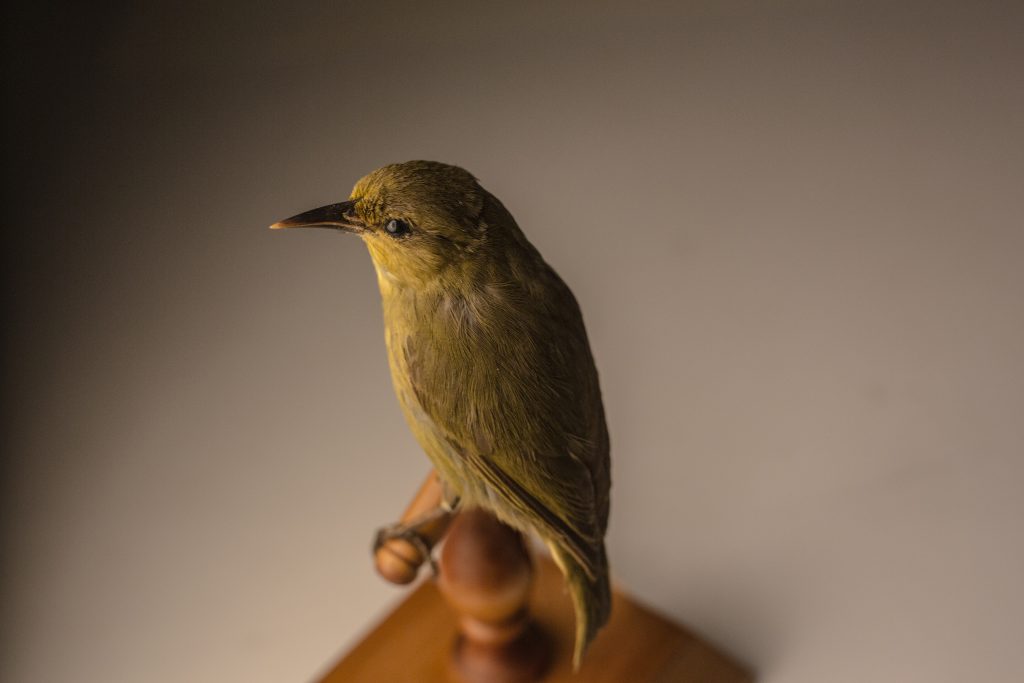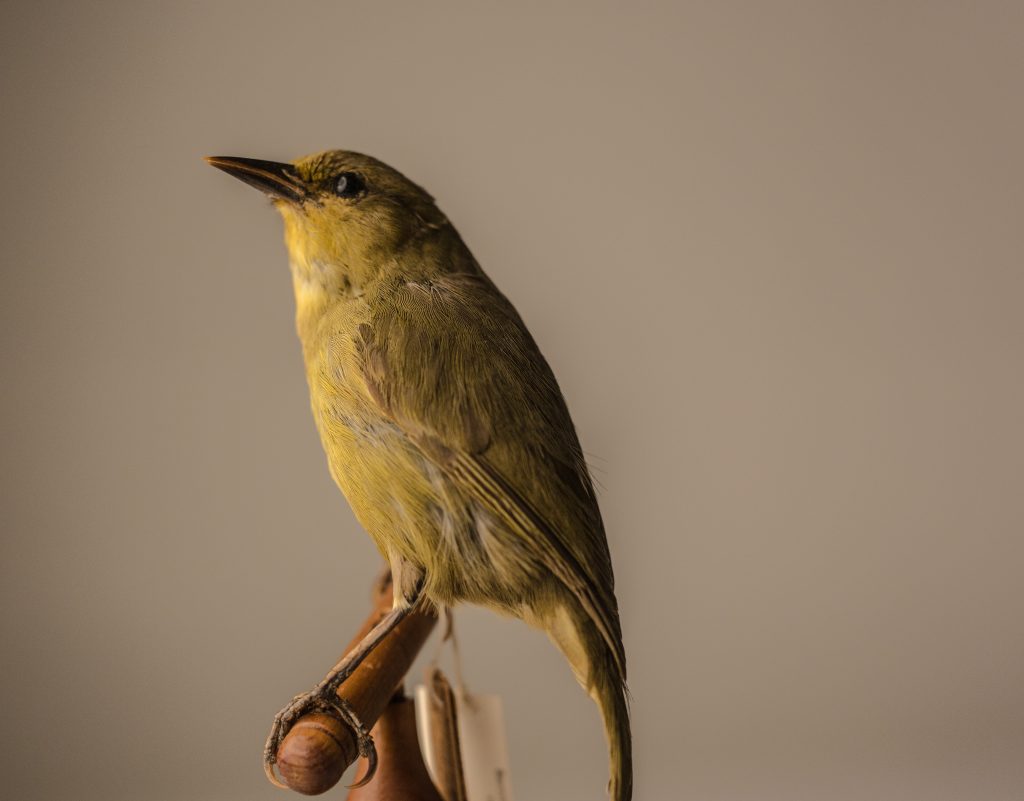Nukupololei: Greater ʻAmakihi

Names
- ʻŌlelo Hawaiʻi: Nukupololei
- Common Name: Greater ʻamakihi
- Scientific: Viridonia sagittirostris
Song
No available recordings. Resembling other ʻamakihi species, the greater ʻamakihi had “short primary songs, and complex whisper songs” (Prat 1979).
Conservation Status
Extinct. Last recorded sighting in 1901.
Species Information
The greater ʻamakihi was a Hawaiian honeycreeper recognized by its yellowy plumage and sharp bill. The plumage of all ʻamakihi species is similar: males are yellow-green to olive with black lores. Females are generally similar, but duller in color. The plumage of males is bright yellow-green above, and there is some inter-island variation, especially among females. Greater ʻamakihi bills resembled an arrow, different from the typical curved-bill characteristic used for classifying ʻamakihi (Pratt 2014). Their arrow-like beaks are assumed to be adapted for food sources such as koa seeds. The greater ʻamakihi was last observed on Hawaiʻi Island in 1901.
Distribution
Hawai’i Island
Habitat
While there is no complete analysis of habitat for the greater ʻamakihi, the ornithologists who observed the species found it in lowlands above Hilo between elevations of 370-1,200 m (Pyle & Pyle 2017).
Threats
The exact cause of extinction is not conclusively known, but greater ʻamakihi habitat was likely cleared for sugar cane fields. The birds would have been susceptible to the same factors that threaten other native Hawaiian forest birds including loss and degradation of habitat, predation by introduced mammals, and disease. (Amadon 1950, Lindsey et al. 1998, in Pyle & Pyle 2017).
Photos
Additional Resources
Pratt, H. D. 1979. A systematic analysis of the endemic avifauna of the Hawaiian Islands. Ph.D. dissertation, Louisiana State University
Pratt, H. D. (2014). A consensus taxonomy for the Hawaiian honeycreepers. Occasional Papers of the Museum of Natural Science, Louisiana State University, (85)1



